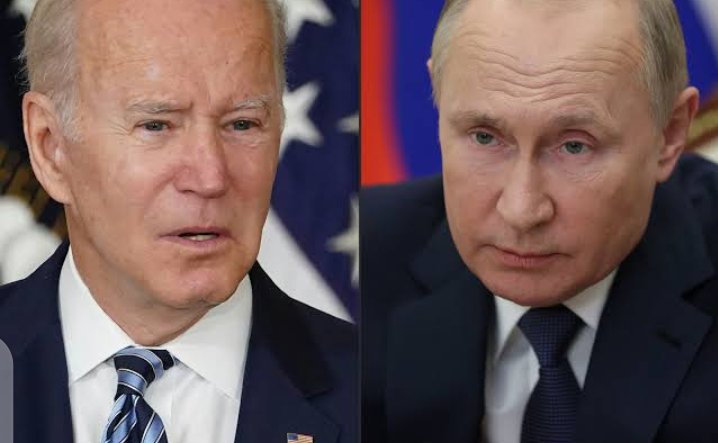By Dr Olukayode Oyeleye
Big governments coming. Stalin is returning and Mao is reincarnating. Democracy is threatened. The West is under siege. Just when we should be saying that democracy is gaining grounds and nations’ independence (irrespective of how small they are) is becoming the norm, some militarily strong countries are flexing muscles, invading smaller and weaker ones, turning them into appendages.
This is becoming a vogue among big dictatorships who are uncomfortable with participatory governance. One successful bid reinforces the determination for another bid. The world is on the brink, not necessarily of war, but of a return to totalitarianism. The return to the pre-1980s arms race appears like ploys to intimidate their targets into submission, to re-enact the Soviet era hegemony and one-big China before the Western incursions. The world may be about having more than one Hitler simultaneously this time, with diplomatic community in turbulence as the UN system may be helpless and irrelevant in the unfolding realities.
Some nations are obsessed with ambitions of outsized kingdoms. Vladimir Putin went for Crimea in 2014, swallowed it in a hostile takeover and the UN could not force its reversal since then. Xi Jinping followed by quasi-judicial and quasi-military merger of Hong Kong and all we heard in the past three years were muffled sounds from the UN and the West. Now Xi is poised still on acquisition of Taiwan. And Putin seems to have returned to his Crimea playbook, trying to pocket Ukraine. That dream may only be aborted if Putin ceases to rule Russia.
With the Hong Kong *fait accompli,* there’s little reason to doubt an imminent overrun of Taiwan. After all, Chinese warplanes have been flying overhead and encircling Taiwan for weeks, as part of Chinese psychological warfare and Xi Jinping has said expressly that any external resistance to Taiwan takeover will be resisted with brute force.
The lineup of Russian military hardware and troops near the border with Ukraine speaks more loudly than Russia seems willing to divulge. Even the reluctant and partial withdrawal now betrays the hidden motive. Ukraine is an endangered species and could go under anytime. Only the naive and uninformed will agree that Russia meant nothing by its latest “acts.” Moscow may sack Kiev and turn the latter to just an outpost. Putin’s demands clearly shows his intention. Why kick against Ukraine’s decision to associate with NATO? Why meddle in the internal affairs of an independent country? Has anyone tried to figure out the core aim of Putin’s visit to Beijing recently? My guess is that they both want to strike at the same time so as to wear out any opposition to their expansionist ambitions. They both want to eliminate democratic rules in their immediate neighbourhoods.
How far NATO is willing and able to go in countering Putin and Xi or checkmating them is what may not be immediately clear. But a redefinition of the world’s political configuration is afoot and we need to realistically brace for the endgame. A change brought about by the force of arms defies the finesse of legalism. The superior force dictates the path to follow and the steps to take. In the end, democracies may emerge weaker and bastardised.
In the process, NATO financiers may experience fatigue and become split as their individual countries’ economies undergo stress and strain in this period of slow post-pandemic recovery. Customary of democracies, particularly in countries preparing for elections, consideration for citizens’ demands, political capital and electoral advantages may force some strong NATO member countries to reduce their contributions in the meantime, as there may be waves of protests against continued support for ideological wars in far flung places.
A weakened NATO may yield ground to both Russia and China. The latter two may gain upper hand and begin to set new rules for the world. Their bellicose diplomacy may have paid off eventually. We may thus end up with autocracy and authoritarian governments as China will push hard to substantiate its success in controlling crime through central command and surveillance, gloating over democratic countries with uncontrollable waves of insurgencies, terrorism and criminality.
In the short term, NATO alliance may temporarily succeed in using instruments of trade to checkmate Putin and Xi. But the economic pressure on the NATO member countries may make them to buckle. The effect of truncating the Nordstream 2 gas pipe project may hurt Germany to the extent that it will dispense with alternative sources. China may redirect it’s supply chain links as it revs up is participation in ASEAN membership, preferring rather to be a local champion for the time being, preserving its expansionist agenda while growing it’s economy regionally within the region that is nearly half of the world population.
Effects of Putin and Xi in their overreach will be felt in Africa. Oil and gas prices might rise, thus affecting people’s income and savings. Ukraine’s wheat, 75 per cent of which is sold to Africa and the Middle East, may be in short supplies. Countries dependent on wheat-based products will therefore have to grapple with rise in price of commodities such as bread. Mass protests are to be expected in pockets of cases. This could threaten stability of some governments as it did in 2019 in Sudan that led to the toppling of Omar al-Bashir’s government.
The Russian interference in Ukraine should therefore be viewed in the larger context of its effects on countries far and near. This and China’s tension will very likely create economic shock waves that the post-pandemic world might have to struggle hard to contend with. The world may not be the same by the time the dust finally settles.
Dear readers, we really need your support to keep on serving you with authoritative, truthful, and juicy stories everyday. For your support, please reach out to the editor @gavelinternational66@gmail.com

